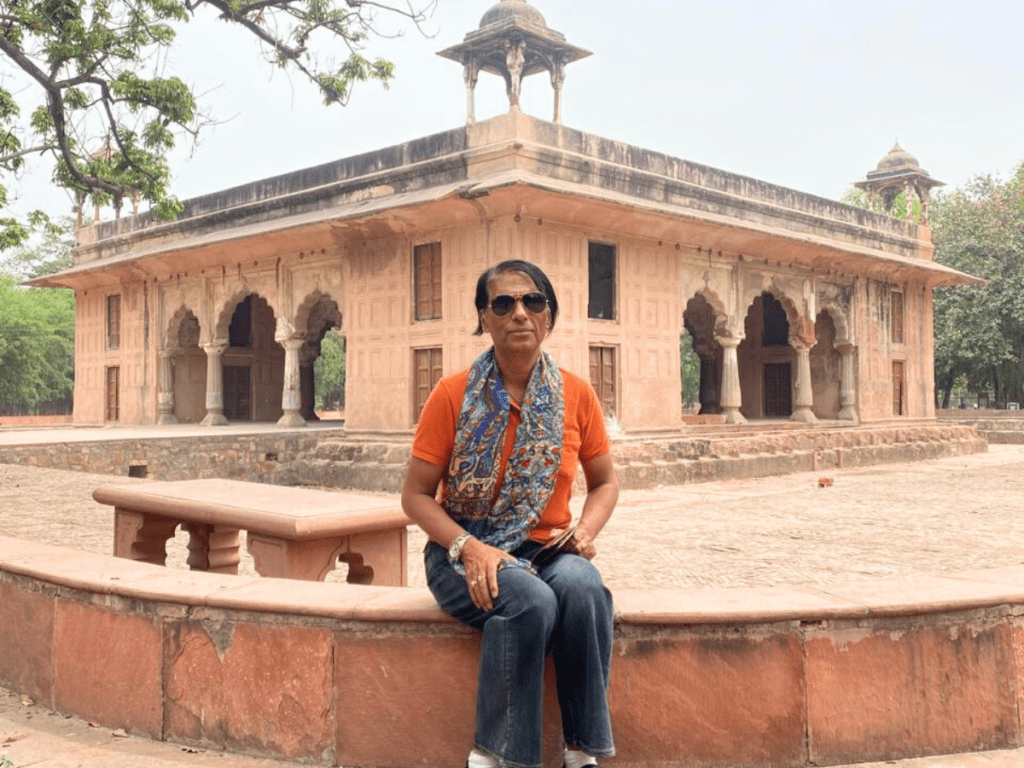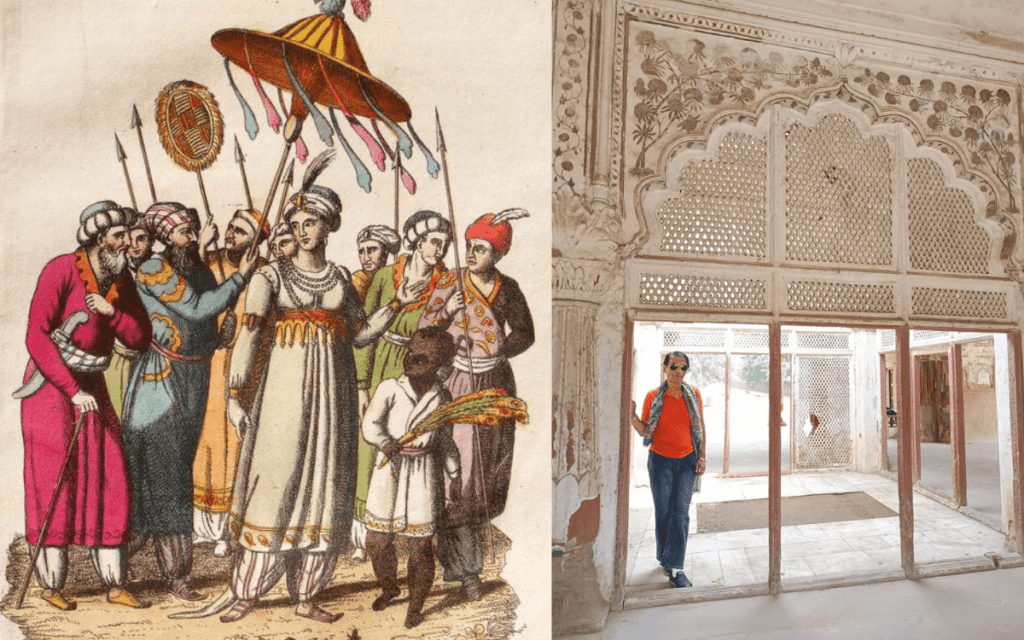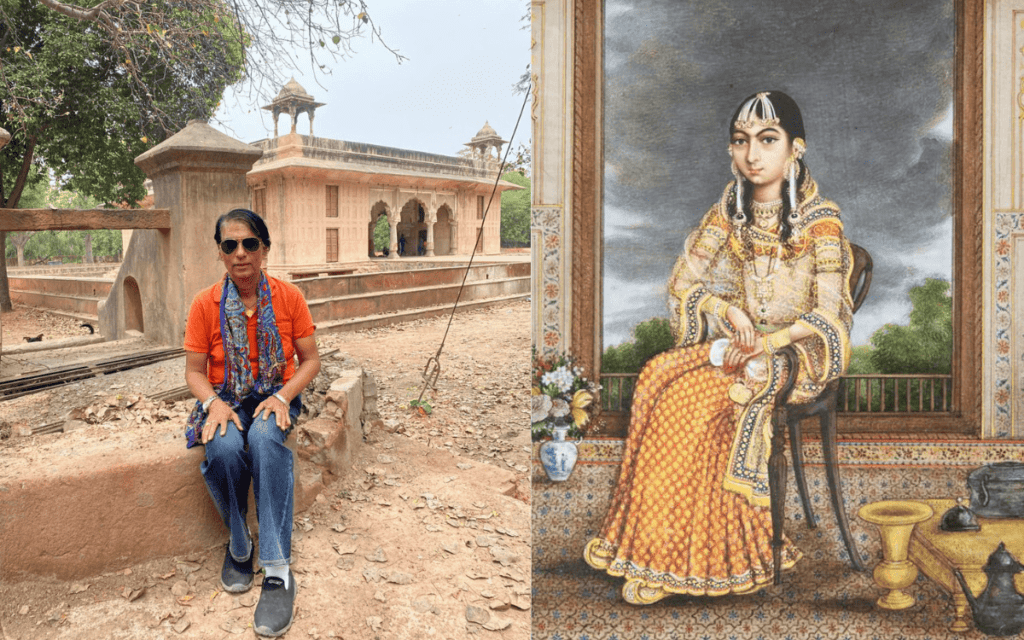Roshanara Bagh Delhi – A Hidden Mughal Garden of Serenity and History. A timeless beauty of crafted by the enchanting Roshanara Begum, daughter of the legendary Mughal emperor Shah Jahan. Nestled near the Kamla Nagar Clock Tower and the North Campus of the University of Delhi, Roshanara Bagh whispers tales of love and legacy in every rustle of its leaves. As you wander amidst its fragrant blooms and ancient pathways, let the history and romance of Old Delhi weave a spell around you, making every step a dance of timeless allure.

Roshanara Bagh A Mughal Garden: Over View
In the heart of Old Delhi’s heritage, amidst the whispers of time and the echoes of ancient stories, lies the enchanting Roshanara Bagh Tomb. Built with love and adorned with history by Roshanara Begum in 1650, this tomb stands as a testament to her personal palace and a jewel in the crown of Shahjahanabad, now fondly known as Purani Dilli. As you wander through its hallowed grounds, you’ll discover the Baradari, a captivating structure with a small, roofless grave chamber at its center, embraced by a hall adorned with a marble jaali. Surrounding this sacred space are ornamental water troughs, once filled with life’s flowing essence, now dry but still echoing the serenity of bygone days. The garden, witness to the ebb and flow of time, has seen many transformations, yet it remains a timeless oasis of romance and heritage in the heart of bustling Old Delhi.
Roshanara Bagh History of A Mughal Princes
Roshanara Begum’s (3 September 1617 – 11 September 1671) journey from princess to powerhouse was nothing short of a gripping tale of loyalty, cunning, and ambition. It all started with a daring move—when she uncovered a sinister plot by her own father Shah Jahan and brother Dara Shikoh to eliminate Aurangzeb, the very sibling she had supported in the tumultuous War of Succession.

Through secret messages and strategic maneuvers, Roshanara not only saved Aurangzeb’s life but also earned his trust and gratitude. This pivotal moment catapulted her into a position of unparalleled influence, earning her the coveted title of Padshah Begum and the authority to issue royal decrees.
As the de facto co-ruler of the empire, Roshanara’s power was unmatched. Her keen political acumen and unwavering support for Aurangzeb made her indispensable. However, her penchant for luxury and excesses eventually drew Aurangzeb’s disapproval, leading to her fall from grace.
Undeterred by setbacks, Roshanara retreated to her sanctuary, Roshanara Bagh, near the iconic Red Fort, where she sought solace and reflection. She died at the age of 54, Her legacy, a testament to her resilience and determination, continues to echo through the corridors of history—a reminder of a woman who defied norms and carved her path in the annals of Mughal Empire Glory, offering a glimpse into the complexities and dynamics of power in medieval India.
👉 See Near Roshanara Bagh 1857 Mutiny Memorial.
Roshanara Bagh: A Mughal Princess Decided Hindustan’s Destiny

Roshanara Begum was a very important person in Mughal history. She helped decide what happened in Hindustan, which is India now. She was the daughter of Emperor Shah Jahan and Mumtaz Mahal. Even though she was a princess, her influence went beyond just being royal. She made smart decisions in the tricky world of politics and supported her brother Aurangzeb when he wanted to become emperor. Because of her clever choices and dreams, Aurangzeb became powerful, and she became Padshah Begam. Roshanara’s memory lives on in Roshanara Bagh, showing how strong and lasting her impact was on medieval India.
Aurangzeb, steeped in orthodox beliefs, and Dara Shikoh, known for his liberal and secular views, stood at the crossroads of destiny. The tragic what-ifs lingered in the air, for had Dara Shikoh ascended the Mughal throne, Hindustan and its people might have known a different fate. Yet, the weight of history bore down heavily, leaving a melancholic echo of possibilities lost and paths untaken.
👉 Discover the Magic of Old Delhi with a Guided Heritage Walk
Roshanara Bagh: Reach Nearest Metro
Roshanara Bagh Nearest Metro Station: Pul Bangash and walk of 10 Minutes only. Near Delhi University and Kamala Nagar Clock Tower.